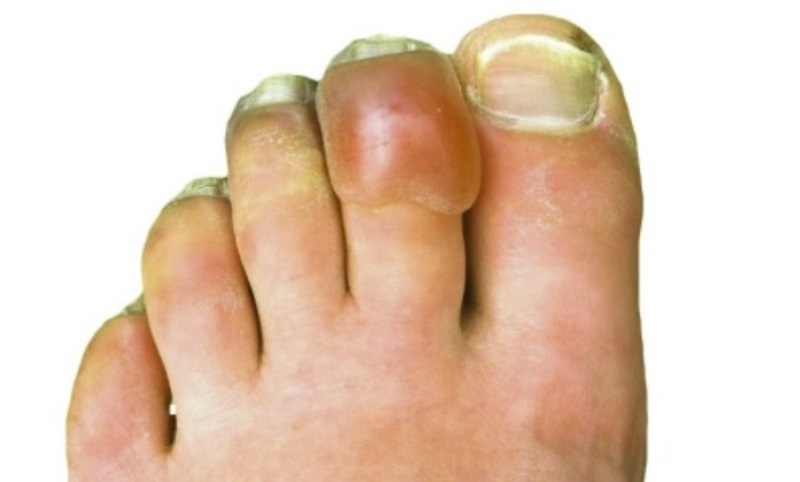The Polycystic Ovary Syndrome, or commonly known as PCOS, is a hormonal disorder that affects almost 1 in every 10 women. It might surprise you, but even teenagers of age 13 or less can suffer from it as well. Though, the condition is mostly associated with women of childbearing age. In some countries, PCOS is more common than others. For instance, in India, around 1 in 5 women is somehow affected by it.
So what causes this hormonal disorder and how to prevent PCOS? Don’t worry – we are here to assist you. In this comprehensive guide, we will let you know how the hormonal condition arises, the risks associated with it, the ideal course of action, and more.
Suggested read: 9 Ultimate Home Remedies For Pilonidal Cysts
What is PCOS?
PCOS is one of the most common hormonal disorders found in women. It happens when the reproductive hormones produced by the body are not in an ideal ratio. This leads to an imbalance in hormones and can cause several other issues. It can affect your menstrual cycle, cause acne, diabetes, high blood pressure, and other ailments. The condition is also associated with weight gain and fertility.
While PCOS stands of “polycystic” ovary syndrome, it is not essential to have a cyst on (or around) ovaries. A lot of women are affected by the condition without the occurrence of any cyst.
Causes of PCOS
It is quite tough to point a single cause of PCOS. Doctors are still not sure about a single trigger as the condition can be caused by numerous factors.
Genetics
It has been observed that genetics play a vital role in PCOS. If the hormonal disorder runs in your family, then there is a higher probability of you suffering from it as well.
Elevated androgen levels
Androgen is a prominent hormone that is found in both men and women. Though, it is identified as a “male” hormone and is responsible for peculiar masculine characteristics. If you have a higher level of androgen in your body, then it can result in PCOS. Besides that, it can also cause hair fall, body hair, and disrupted menstrual flow.
Other hormonal imbalance
Apart from androgen, other hormones like insulin and progesterone can also trigger PCOS. An elevated amount of insulin in your body can affect the functioning of your ovaries. In addition to that, if your body produces less progesterone than the needed amount, then it can further trigger PCOS in the long run.
Major Symptoms of PCOS
From unwanted body hair to weight gain, there could be different symptoms of PCOS that might vary from one individual to another. Ideally, if you are depicting more than one of these symptoms, then you should consider visiting a doctor to get a proper diagnosis.
- Hair growth on unwanted areas like chin, stomach, back, and face
- Thinning of the hairline and drastic hair fall
- Irregular menstrual flow (no, heavy, or late periods)
- Sudden weight gain
- Trouble losing weight
- Acne or the formation of oily skin due to hormonal imbalance
- Headaches and body pain
- Trouble falling asleep
- Feeling tired and short of energy all the time
- A lot of PCOS patients find it hard to get pregnant
- Thick and dark patches on the skin
How is PCOS diagnosed?
If you think you are showing the above-mentioned symptoms of PCOS, then you should consider visiting an experienced doctor. They will ask you questions about your overall health, genetics, menstrual cycle, and other related issues. This will help them perform the first level of diagnosis.
Later, a thorough physical examination of the patient’s body is performed. Your BMI (Body Mass Index) would be calculated as well as an examination of your reproductive organs would be performed. It might include a transvaginal ultrasound too. To confirm it, a blood test would be done to check the level of hormones and insulin in your body.
Short and Long-term Risks
Since PCOS is closely related to the hormonal balance in our body, it can have some drastic short and long-term effects. Following are some of the common risks associated with PCOS.
- Sudden weight gain and the inability to losing weight is one of the most prominent side-effects of PCOS. Around 50% of women suffering from PCOS are identified as obese or overweight.
- Women with PCOS are also more likely to suffer from diabetes due to the imbalance of insulin in their body.
- Elevated blood pressure and cholesterol levels are also some common risks related to PCOS.
- In the long run, women having PCOS are more likely to have heart-related issues.
- If a woman won’t get her periods regularly, then it can lead to the thickening of the endometrium (the lining of the uterus). This can cause a lot of problems to one’s health and even result in cancer in the long run.
Suggested read: 8 Super Effective Home Remedies For Perioral Dermatitis
The Common Treatments
There are different ways to treat PCOS. Ideally, after performing a thorough diagnosis, your doctor would come up with an ideal course of treatment. Since there is no one-time cure for PCOS, your doctor might follow different approaches to get a holistic treatment. Some of the common ways to treat PCOS are as follows.
Lifestyle changes
One of the best ways to control PCOS is by making some prominent lifestyle choices. Try to regulate your weight and stay fit. Don’t follow a sedentary lifestyle or smoke.
Birth control pills
It is a common approach to treat PCOS with birth control pills. Your doctor can prescribe a combination of birth control pills, depending on the level of androgen in your body. Most of these pills can help you attain hormonal balance and decrease the elevated level of androgen in your body.
Skin patch or rings
Just like pills, there are certain skin patches and vaginal rings that your doctor might suggest. They can increase the level of estrogen and progestin in your body.
Metformin
If the level of insulin is not ideal in your body, then you can doctor can prescribe Metformin as well. The drug is mostly used to treat type-2 diabetes.
Progestin therapy
Some doctors also recommend an intensive progestin therapy to their patients as well. In this, a restricted amount of progestin is taken for 10-12 days in every month or two. This will regulate your menstrual flow and avoid the formation of cancerous cells.
Other medicines
There are several other medicines that your doctor might prescribe, depending on your diagnosis. Letrozole is a well-known drug that is prescribed to stimulate ovaries. Clomiphene is an oral medicine that is mostly recommended during the first stage of the menstrual flow. In some cases, Gonadotropins injections can also be given.
How to prevent PCOS?
We all know that prevention is better than cure. If PCOS runs in your family or you are depicting some of its symptoms, then you should certainly be alarmed. Experts usually recommend the following suggestions to prevent PCOS at an early stage.
- Make sure that you don’t gain weight as it can trigger the implications of PCOS. Meet an expert or a dietician to ensure you eat nutritive meals. In the process of losing weight, don’t starve yourself as it can cause more harm to your body than good.
- Include more protein-rich and high-fiber food in your meals. Also, pick anti-inflammatory items that would improve your digestion.
- At the same time, avoid inflammatory food, carbohydrates, and too much sugar. It is highly recommended for PCOS patients to maintain low blood sugar levels.
- Make sure you exercise at least 150 minutes in a week. If you have a sedentary lifestyle, then it can cause several other ailments in your body as well.
- If you have PCOS and would like to conceive, then visit an experienced physician. Take the prescribed medicines and follow the suggested exercises.
- Most of the symptoms of PCOS can cause stress and anxiety in women. Therefore, you should follow a stress reduction technique (like yoga and meditation) to help you calm your senses.
- Avoid smoking as it can cause a hormonal imbalance in your body. Try not to take any other kind of drugs that are not prescribed by your doctor.
- Stay active by following a strict fitness regime. Consider walking in the morning for at least 30 minutes a day. Not only will the fresh oxygen calm your senses, but it will also help you regulate your weight.
Suggested read: 7 Safe And Natural Home Remedies For Dog Allergies
If you are depicting the major symptoms of PCOS, then we would recommend visiting an experienced doctor. They will help you learn how to prevent PCOS in detail by considering your medical history and personal records.
Since PCOS can be tough to diagnose, you can get a second opinion as well and get a thorough diagnosis done. A blood test would indicate the level of androgen in your body, which can help an expert diagnose PCOS quite easily. Remember, the sooner PCOS would be diagnosed, the easier it would be to treat it. Maintain a healthy lifestyle and eat nutrient-rich meals to prevent PCOS. Give your body the care it deserves to live a healthy life.
Featured image source: Google, copyright-free image under Creative Commons License













